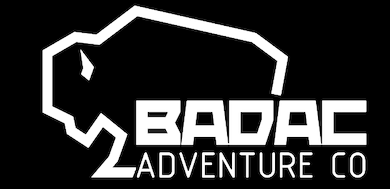The Advantage of Selling Based on Trust

When you look closely at the sales training that RV dealerships are doing, it is amazing how they differ from dealership to dealership across the country. Some are all in, being not only committed to getting new salespeople off on the right foot with comprehensive, step by step training, but also go to great expense to retrain their existing sales staff.
Most of the better dealerships focus on all the key attributes of selling RV’s including product knowledge, handling objections and of course, how to close the deal. All good right? Maybe not . . . things have changed.
Making the decision to buy an RV has always been an emotional decision but is even more so now that the price of food and fuel is up, interest rates are a lot higher, and some people have either left or lost jobs during COVID. As a result, since RV sales blew up during COVID, when everyone wanted to go camping to avoid possibly getting sick, customers are now ‘circling the wagons’ around their bank accounts.
All this has increased customer tension, making the decision to buy even more emotional than before, putting more pressure on a problem that’s always been there but is worse now; the need for salespeople to build trust with their customers. Very few dealerships teach their salespeople how to actually build trust with their customers. Many rely on the salespeople simply employing the interpersonal skills they used in the job interview to get hired, thinking this is good enough……but it’s not.
Sales coach & trainer Jack Daly calls selling “the transfer of trust”. As a long time salesperson, Sales Manager and Director of Employee Development of an RV company, I felt so strongly about this, I wrote a book (just released) on it called “No Trust, No Sale”.
Now more than ever, dealerships must pay more attention to the psychology of selling and start teaching salespeople how to help anxious customers feel the sense of comfort they need for rapport and trust to build. Typically, the first 15-20 minutes is spent finding out what the customer wants, why they want it and how much they want to spend on it. I strongly contend that this time must be spent trying to relax customers, helping them and the salesperson get to know and feel comfortable with each other BEFORE any of the other things get discussed. If not, no matter how much they like the product they’re looking at, the decision of whether they trust their salesperson will always linger in the back of their mind and WILL BE the reason they eventually say they “want to go home and think about it”, not buying today.
This issue can be seen just by watching customers as they walk in the front door of a dealership. This have become very crafty and masters of escape, using all kinds of tricks to avoid working with a salesperson and mastering all the usual phrases such as “I’m just looking”, “I don’t need to work with a salesperson”, “I just want to go out and look” or “I just have 5 minutes”.
With less customers walking into dealerships now due to the economy, extra time is now available for salespeople to do the human relations work they need to ease customer anxiety and relax them before moving forward with their selling process. This will result in customers:
- Paying less attention to negative comments read online
- Listening more intently to the salesperson
- Relaxing and focusing more on the shopping than the buying
- Following salesperson’s advice and recommendations
- Not holding information back from the salesperson
- Being more open and honest with the salesperson (less negative body language cues to have to interpret)
- Being less price-focused
- Having more fun while shopping
- Having less objections (and will voice them earlier if they do)
- Moving faster through the buying process
- More easily making the decision to buy today
- Generate more trust-based referrals, who tend to be a much higher profit customer
Let’s face it. Trust beats everything else: price, quality, reputation, location, service and about anything else that could be an obstacle to buying.
Customers are people first, so salespeople need to approach them in exactly that way and hit the pause button on the sales steps and techniques until they have taken steps to relax their customer and help them feel the comfort they need to allow rapport and trust to be built. Once that foundation is built, EVERYTHING that comes after will be easier, including the decision to buy.


